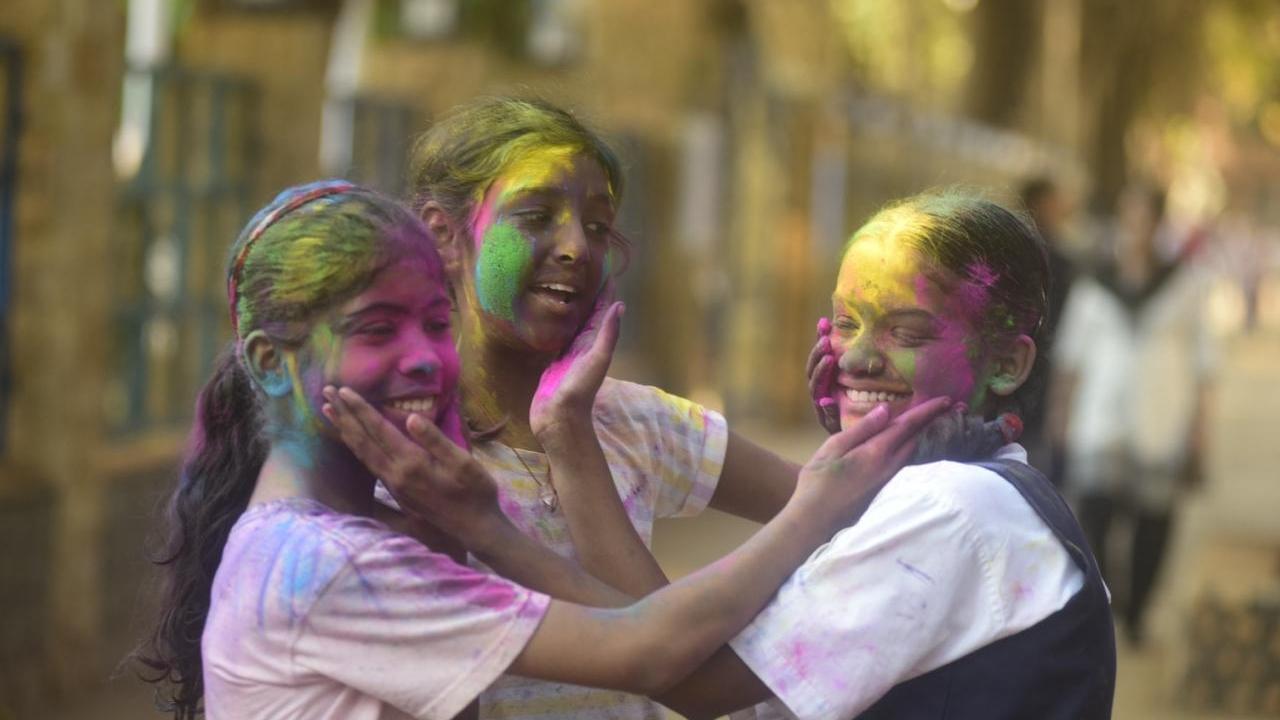Holi, also known as the Festival of Colours, is one of India's most colourful and cheerful holidays. Ahead of Holi 2024, let's understand why we play with colours at this festival.

Representative Image/ Atul Kamble
Holi, also known as the Festival of Colours, is one of India's most colourful and cheerful holidays. It is celebrated yearly, generally in March, to commemorate the onset of spring and the triumph of good over evil. Ahead of Holi 2024, let's understand why we play with colours at this festival.
ADVERTISEMENT
The ritual of playing with colours at Holi dates back to Hindu mythology, notably Lord Krishna's stories. According to Hindu texts, young Krishna, known for his mischievous temperament, envied his lover Radha's lovely skin. Krishna painted colours on Radha's face in an attempt to playfully taunt her, therefore establishing the Holi colour application custom.
Another Holi tradition involves Holika, the sister of the demon ruler Hiranyakashipu. According to Hindu mythology, Hiranyakashipu received a blessing from Lord Brahma that rendered him unstoppable. His son, Prahlad, stayed faithful to Lord Vishnu, much to his father's dismay. To punish Prahlad, Hiranyakashipu ordered his fire-resistant sister Holika to sit with him in a blaze. To everyone's amazement, Prahlad escaped unharmed, while Holika died in the fire. This incident, which represents the triumph of good over evil, is honoured during Holi with bonfires known as "Holika Dahan".
The joyous tossing of colours at Holi has significance beyond its legendary beginnings. It represents the breaking down of caste, creed, and social status boundaries, as people from all walks of life gather to celebrate. During Holi, social standards are momentarily suspended, and individuals engage in joyous celebrations, promoting joy and happiness.
The colours used during Holi are usually prepared using natural materials such as turmeric, neem, and floral extracts. These colours not only brighten up the festivities, but they also offer medical benefits that protect the skin and prevent diseases.
Participating in the colourful festivities of Holi is thought to have spiritual significance as well. It is thought that the colours depict the myriad shades of life and the range of human emotions. Individuals who wear these colours symbolically let go of previous grudges in order to accept forgiveness and healing.
Furthermore, experimenting with colours during Holi is regarded as a form of self-expression and creation. It allows people to let loose, dance to traditional folk music, and enjoy the festive atmosphere. The colourful streaks on people's faces serve as a remembrance of the friendliness and camaraderie they shared at the festival.
 Subscribe today by clicking the link and stay updated with the latest news!" Click here!
Subscribe today by clicking the link and stay updated with the latest news!" Click here!












